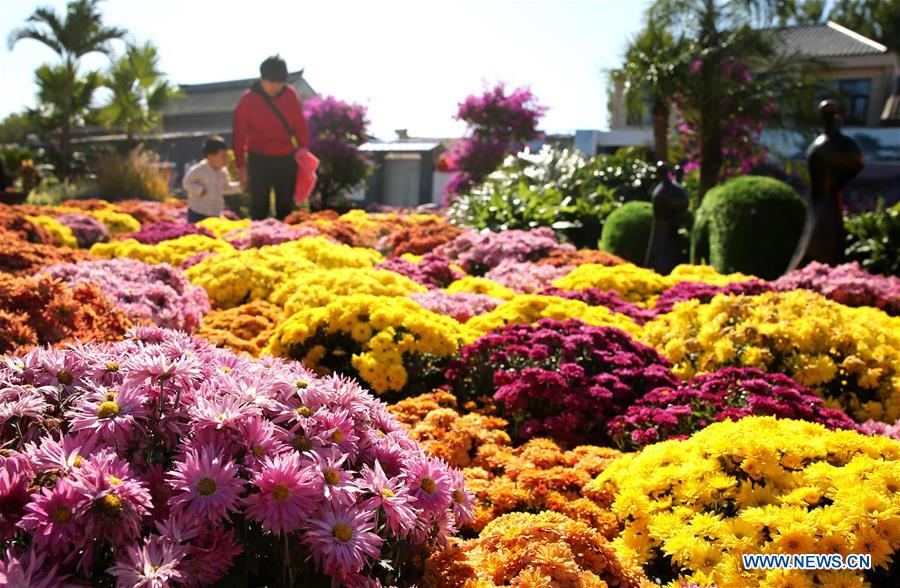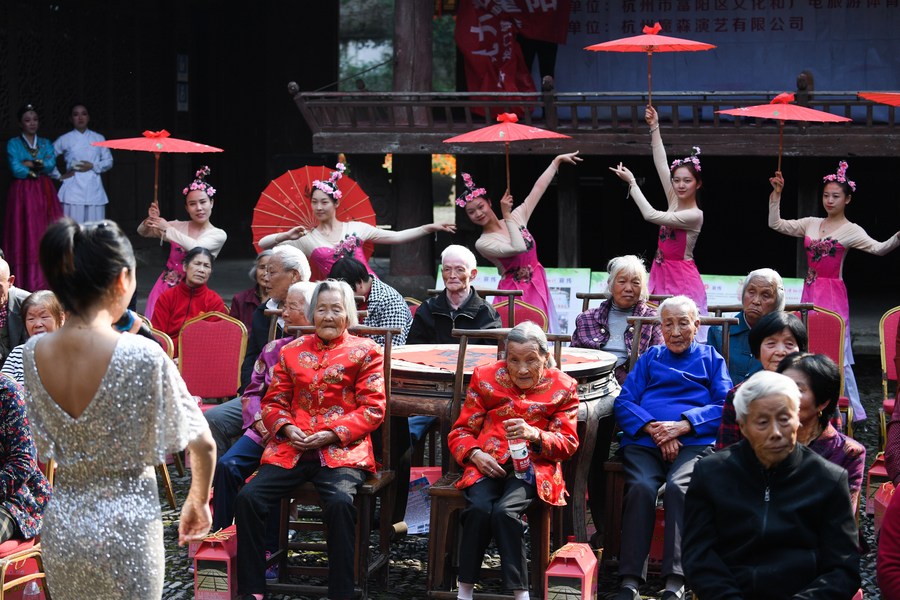Calendar for Traditional Festivals: Chongyang Festival
China's Chongyang Festival, also known as the Double Ninth Festival, takes place every year between October 1 and October 30 on the ninth day of the ninth lunar month. This year, the festival falls on October 4. It is a traditional folk holiday focused on good health and long life, and involves a variety of festivities.
Nine
Nine is an important number in Chinese culture as its pronunciation is the same as the word for "long" in Chinese.
According to the Book of Changes, the number six is considered yin while nine is yang. The ninth day of the ninth lunar month in the Chinese calendar features two nines, so the day is given the Chinese name "Chongyang."
Plants
Celebrations for the Double Ninth Festival involve two important plants - cornel, and chrysanthemum.
Cornel, famous in Traditional Chinese Medicine (TCM), is widely planted in the north and south of China. People in ancient times believed that wearing cornel twigs on the Double Ninth Festival could help prevent diseases and avoid disasters.
Chrysanthemums are believed to have the effect of reducing internal heat and driving bad luck away. Drinkers of chrysanthemum wine can be rid of evil and gain a strong immune system against cold weather.

Tourists visit a chrysanthemum exhibition held in Xiaochang Village, Dachang Hui Autonomous County of north China's Hebei Province, on Oct. 8, 2019. (Xinhua/Wang Xiao)
Elders
Although the Double Ninth Festival was marked as a ritual to worship the gods and ancestors for blessing the harvest during the Warring States Period (206 B.C. – 220 AD), these days, it has taken on more meaning.
In 1989, the Chinese government designated it as a day for showing respect to the elderly, requiring that people care for, love, and help senior citizens.
It also became an occasion for paying respects to one's ancestors. Sweeping ancestors' graves and visiting elderly family members are usually what people do on this day.

Senior residents watch a performance in Longmen ancient town of Fuyang in Hangzhou, east China's Zhejiang Province, Oct. 20, 2020. (Xinhua/Xu Yu)
Climbing
The custom of climbing on the Double Ninth Festival has a long history. Ancient Chinese people both feared and worshipped mountains. The custom of "climbing mountains for blessings" became popular as early as the Spring and Autumn Period (771 - 476 B.C.) and the Warring States Period (206 B.C. – 220 AD).
In addition, ancient societies also believed in climbing mountains to avoid disaster with the whole family climbing as high as possible to become healthy and stay safe from the plague.
Today, it's a great opportunity to join friends and relatives and enjoy the fall scenery.
Related:
Calendar for Traditional Festivals: Mid-Autumn Festival
Calendar for Traditional Festivals: Qixi Festival
Calendar for Traditional Festivals: Dragon Boat Festival
Calendar for Spring Festival: Lantern Festival
(Web editor: Peng Yukai, Bianji)